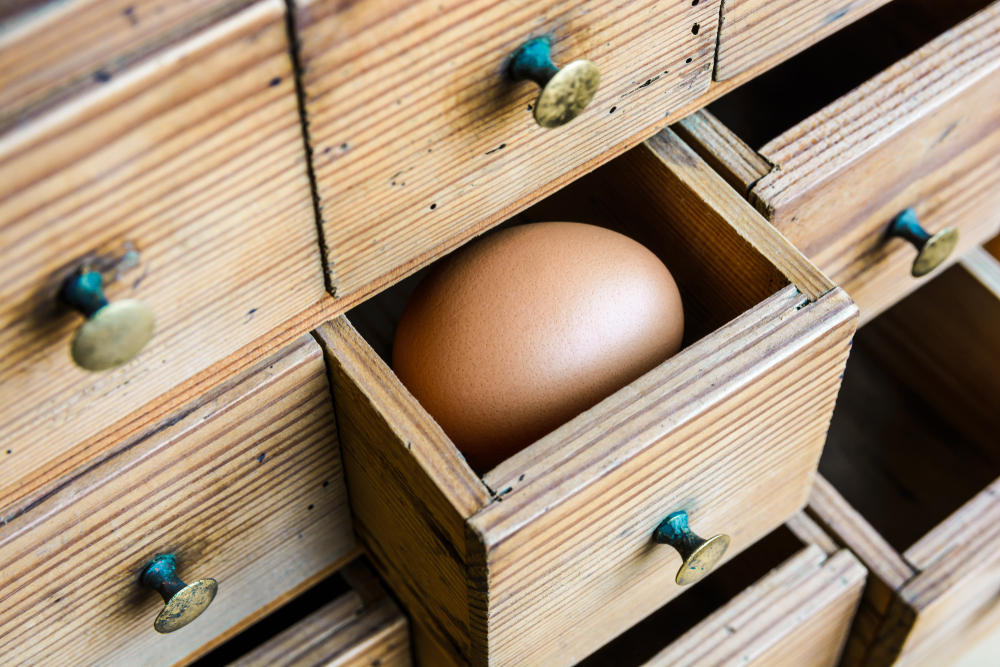BLOG
Finds and Interests

Image: Shutterstock
For most of us, our collecting habits are driven by passion and curiosity. We are keenly interested in a subject and drawn to representative items. When we find something unique, we buy it and add it to our collection. Over time, we curate our finds, acquiring the best examples. A lifetime of collecting represents a considerable investment of time and money.
Another class of collectors collects solely for investment. These collectors are driven by return on investment and portfolio performance—both are legitimate objectives. Such pursuits may be curiosity driven, but curiosity seldom rises to the level of passion (passion for profit notwithstanding). Also, they are focused on preserving wealth by collecting items with long-term, verifiable track records, such as coins, stamps, fine art, wine, and jewelry.
Here, my thoughts are directed at those passionate about collecting rather than collecting for investment.
Ultimately, What Happens to Your Collection Is Out of Your Hands
What will become of your collection when you can no longer safeguard it? It’s unlikely that your heirs will share your passion for your collection. You may designate a disposition in your will, but what a beneficiary does with your largesse is up to them. They can accept it, refuse it, or sell it. Even museum-worthy collections might be put into storage or fragmented. Heirs may keep items with sentimental attachment or out of a sense of obligation. Still, within a generation or two, in most cases, a collection will splinter into individual items and be sold off.

Image: Shutterstock
Collectibles Have Two Kinds of Value
Without a doubt, your collections have meaning to you. An emotional connection, an attachment, gives them priceless emotional value. Financial value, however, is not so easy to pin down. Your collectibles might be worth some money or not. Is their financial worth meaningful to you? Are you preserving wealth, or are you collecting for passion alone?
Your Collections May Put Money into Your Pocket
Either way, you must decide what to do with your collections. But every decision you make will have financial consequences. Here’s a look at three common dispositions and their economic repercussions: [NOTE: these options are for discussion purposes and not intended to be financial advice. Discuss any concerns with your financial advisor.]
- Keep your collection intact and bequeath it to an heir. The collection will be appraised at market value and may be taxable to the beneficiary.
- Donate the collection to a museum or nonprofit—if you can find one. You’ll need a gift-value appraisal, so your accountant can adjust your final tax filing.
- Sell off your collection and use the funds as you see fit. To my way of thinking, this option makes the most sense. This approach is akin to selling off a stock or real estate portfolio. Overall, a collectibles portfolio will likely have increased in value, whether it’s coins, fine art, or toys. As with stocks, some items may be worth less than when you bought them or may not have increased in value. But, if you’ve been paying attention, your collection should have appreciated in value. If you have the records to support your assertions, such appreciation may be taxed as capital gains rather than ordinary income.

Image: Shutterstock
Tips for Preserving Wealth Through Collecting
Let’s face it: you will continue to collect. You’ll invest time, money, and other resources. You may as well systematize your approach so you’ll get the maximum benefits from your efforts. Here are a few tips:
- Do your research. Know how to analyze your items; condition, rarity, demand, provenance, and price. Understand the market for the type of collectible you are interested in; this gives you the “big picture.” Research recent sales prices and trends to understand what you could expect to pay for a piece. This is best done by using a comprehensive online database like WorthPoint®. Plus, the WorthPoint Vault makes cataloging and maintaining digital repositories of collections easy.
- Consider condition. Collectibles that are in good condition will be more valuable than those that are not. If you are considering purchasing a piece that is not in perfect condition, be sure to factor in the restoration cost when deciding.
- Buy from a reputable source. Check online reviews and customer feedback on any dealer or auction house you are considering doing business with before purchasing.
- Have realistic expectations. Remember that collectibles won’t make you rich overnight. Speculation is risky. Don’t rely on collectibles alone to provide your retirement funds.
Ultimately, preserving wealth through passionate collecting requires patience, discipline, creativity, and expertise. By approaching collecting as both an enjoyable hobby and a smart investment opportunity, you can build a lasting legacy that reflects your unique tastes and values while securing your financial future.
Will Seippel is the CEO and founder of WorthPoint, the world’s largest provider of information about art, antiques, and collectibles. An Inc. 500 Company, WorthPoint is used by individuals and organizations seeking credible valuations on everything from cameras to coins. WorthPoint counts the Salvation Army, Habitat for Humanity, and the IRS among its clients.